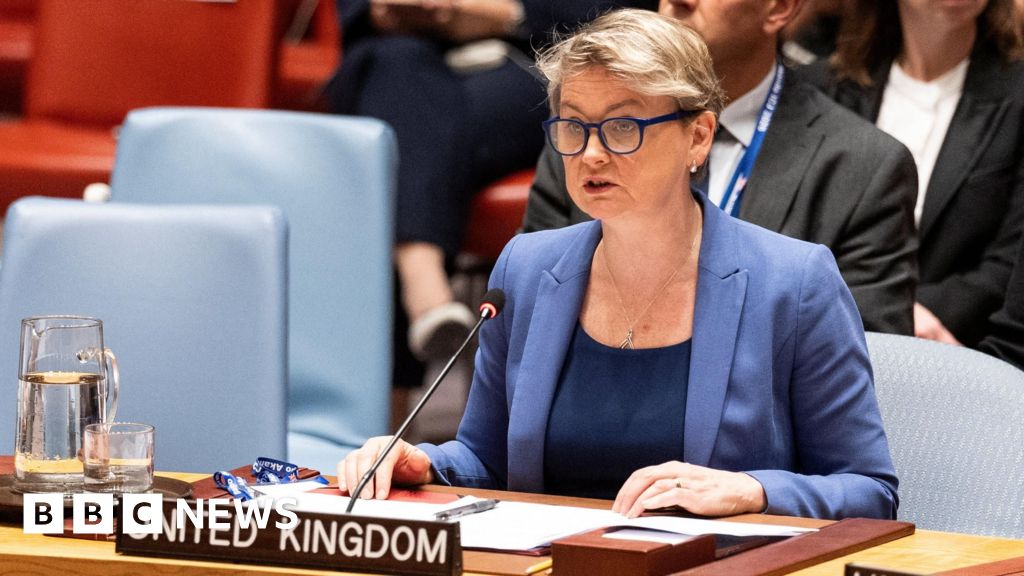
The United Kingdom, France, and Germany have issued a stern warning to Iran, urging it not to escalate tensions following the reimposition of United Nations sanctions on Saturday. The three European powers, collectively known as the E3, emphasized that they had “no choice” but to reinstate these comprehensive measures due to Iran’s “continued nuclear escalation” and lack of cooperation.
In a joint statement, the E3 stated, “We urge Iran to refrain from any escalatory action,” while also noting, “The reimposition of UN sanctions is not the end of diplomacy.” This development comes after Iran’s President Masoud Pezeshkian asserted last week that the nation had no intention of developing nuclear weapons and criticized the sanctions as “unfair, unjust, and illegal.”
Background and Context
The UN sanctions, which encompass economic and military restrictions, were reinstated at 00:00 GMT on Saturday, marking a significant shift a decade after they were lifted under a landmark international agreement concerning Iran’s nuclear program. The Joint Comprehensive Plan of Action (JCPOA), negotiated during Barack Obama’s presidency, was abandoned by the United States in 2016 under then-President Donald Trump, who deemed the deal flawed.
Following the U.S. withdrawal, Iran escalated its nuclear activities, which were previously restricted under the JCPOA. Efforts to reach a new agreement during the UN General Assembly this week between the E3 and Iran did not yield a resolution to prevent the sanctions’ return.
Diplomatic Efforts and Challenges
In their statement, the E3 foreign ministers explained, “Given that Iran repeatedly breached these commitments, the E3 had no choice but to trigger the snapback procedure, at the end of which those resolutions were brought back into force.” Despite this, they expressed a commitment to “continue to pursue diplomatic routes and negotiations.”
The E3 highlighted Iran’s failure to address their concerns, particularly its refusal to cooperate with the International Atomic Energy Agency (IAEA). “Iran has not authorized IAEA inspectors to regain access to Iran’s nuclear sites, nor has it produced and transmitted to the IAEA a report accounting for its stockpile of high-enriched uranium,” the statement read.
IAEA Inspections and Iran’s Position
Iran had suspended IAEA inspections following attacks on its nuclear sites and military bases by Israel and the U.S. in June. Under the nuclear Non-Proliferation Treaty, Iran is legally obliged to allow inspections of its nuclear sites. On Friday, the IAEA confirmed that inspections had resumed, indicating a potential path forward.
However, Iran has cautioned that the renewed sanctions could jeopardize ongoing discussions with the IAEA. President Pezeshkian has retreated from earlier threats to withdraw from the Non-Proliferation Treaty, but he insists on reassurances that Iran’s nuclear facilities will not be targeted by Israel to normalize its nuclear enrichment program.
International Reactions and Future Implications
Iran’s decision to recall its ambassadors from the UK, France, and Germany for consultations underscores the diplomatic strain. In response to a U.S. demand for Iran to surrender its enriched uranium stockpile in exchange for a temporary sanctions exemption, President Pezeshkian remarked, “Why would we put ourselves in such a trap and have a noose around our neck each month?”
The reimposition of sanctions and the E3’s warnings highlight the fragile state of international relations concerning Iran’s nuclear ambitions. The global community remains watchful, as the potential for escalation looms, with diplomatic channels still open but fraught with challenges.
As the situation develops, the international community will be closely monitoring Iran’s next moves and the responses from the E3 and other global powers. The coming weeks may prove pivotal in determining whether diplomacy can prevail or if further tensions will arise.






